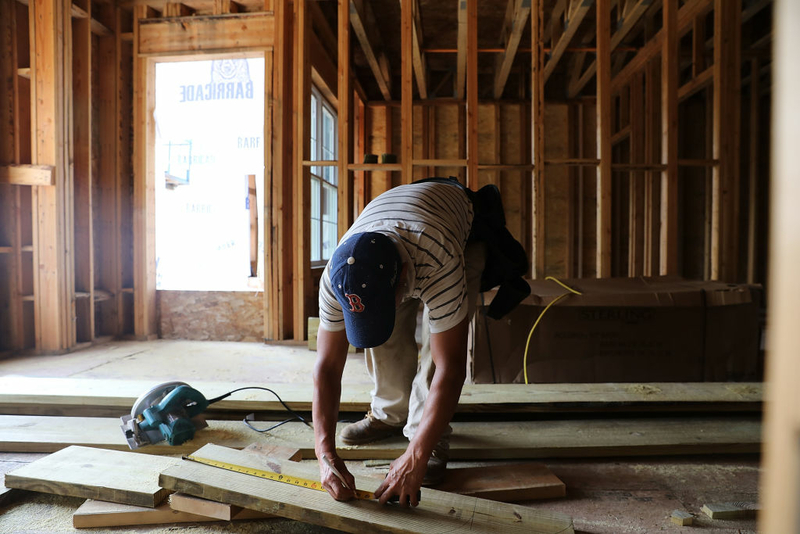Two affordable housing projects will add dozens of homes in Oregon

Two projects in Eugene and Lincoln City aim to help Oregon’s housing crisis by building dozens of homes for low-income residents.
The Lincoln City project aims to provide homes for people who lost theirs in a 2020 wildfire, while the housing in Eugene will put affordable homes up for sale.
The projects will create 80 new, affordable homes at a time of great need. The state is short about 100,000 affordable rental homes for low-income residents who make less than a third of their area’s median income, according to the National Low Income Housing Coalition. Oregon would need to triple its production of subsidized affordable housing units to meet this need, according to Oregon Housing and Community Services.
Millions of dollars of federal and state funding have been directed towards the creation of new affordable housing in Oregon in recent years, including money from the American Rescue Plan, which was approved by Congress in 2021. The state Legislature has also chipped in: Early this year during the legislative session, it approved $215 million to build and preserve affordable housing.
Help for fire victims
Around 300 homes were lost in the Echo Mountain Fire that ripped through Lincoln County in 2020. A housing project now underway in Lincoln City, Wecoma Place, aims to help those who lost their homes. The project will house 44 units.
“That’s a drop in the bucket, but it’s a start,” said Amanda Perkins, a partner and chief operating officer of Stewardship Development, which is behind the project.
Wecoma Place will have eight one-bedroom apartments priced so that people earning about one-third of the average income in the area – or $15,000 a year for one person, according to the U.S. Department of Housing and Urban Development – will be able to rent them, Perkins said. The other units will include one and two bedroom units that will be priced for a person who earns about double that.
Renters will pay the management company, Pinehurst Management.
The rentals will be close to public transportation, schools and several shopping centers, according to a press release. Residents will have access to support services, including a monthly food program, garden programs and health and wellness programs through the statewide nonprofit Cornerstone Community Services.
The Oregon Housing and Community Services has allocated $4.7 million to the project. It is also benefiting from $10.9 million in federal disaster tax credits and $530,000 from the Housing Authority of Lincoln County.
Lincoln City has given the project a 30-year deferral of system development charges and exemption from property taxes. Perkins said as long as the project remains affordable, the city will likely continue deferring these fees.
Perkins said the project was possible thanks to this support. Affordable housing projects are often costly because lower rents don’t make up for the building costs, but Perkins said this project is more expensive because it will be built on a slope, which can create more construction-related issues than flat land, and the Oregon Department of Transportation requires road improvements since it will be built alongside U.S. Highway. Perkins said the road improvements will cost $400,000 to $450,000 but this is being covered by additional funding from the state.
Stewardship Developments held a groundbreaking ceremony at the spot last money. It estimates people will be able to move into Wecoma Place in early 2024.
West Eugene project
Eugene has affordable housing rentals but the nonprofit DevNW, which develops affordable housing, seeks to build 40 new affordable homes in west Eugene for people to buy.
“Homeownership in the United States is the number one form of asset building for most people,” said Erin Dey, DevNW’s director of real estate development. “So if they don’t have access to that, they don’t have any opportunity that ever kind of move up and onward out of that affordable housing continuum.”
Oregon Housing and Community Services awarded DevNW more than $3 million in 2020 for the project in Eugene and another affordable housing project in Corvallis for 11 homes also for people who make under 80% of the area’s median income.
At its west Eugene site, 31 homes will be sold to people with incomes under 80% of the area’s median income, which is about $44,640 a year for one person in Lane County according to U.S. Department of Housing and Urban Development. Those homes will have a shared equity model or a community land trust model: The homeowner will own the building but DevNW will own the land and the infrastructure of the house, making the mortgage more affordable for the homeowner. The homeowners will get a mortgage just for the cost of the house itself and will pay a ground lease fee, which is usually around $100 a month, Dey said.
As part of this deal, homeowners are required to sell their homes to someone who also makes under 80% of the area’s median income if they decide to move.
The other nine homes will be townhomes priced at market rate.
“There’s still plenty of people out there that earn above 80% of the area median income that still cannot compete in the market,” Dey said. “This is our first attempt to kind of mix and match to try to see if we can start really building that ladder and do that in a really effective way.”
Dey said part of the reason DevNW chose Eugene for the project is because the city often offers financial incentives to affordable housing developers. The city has waived the project’s system development charges.
DevNW expects the homes to be available for purchase by 2023.
This story was developed as part of the Catalyst Journalism Project at the University of Oregon School of Journalism and Communication. Catalyst brings together investigative reporting and solutions journalism to spark action and response to Oregon’s most perplexing issues. Follow the project on Twitter at @UO_catalyst.








